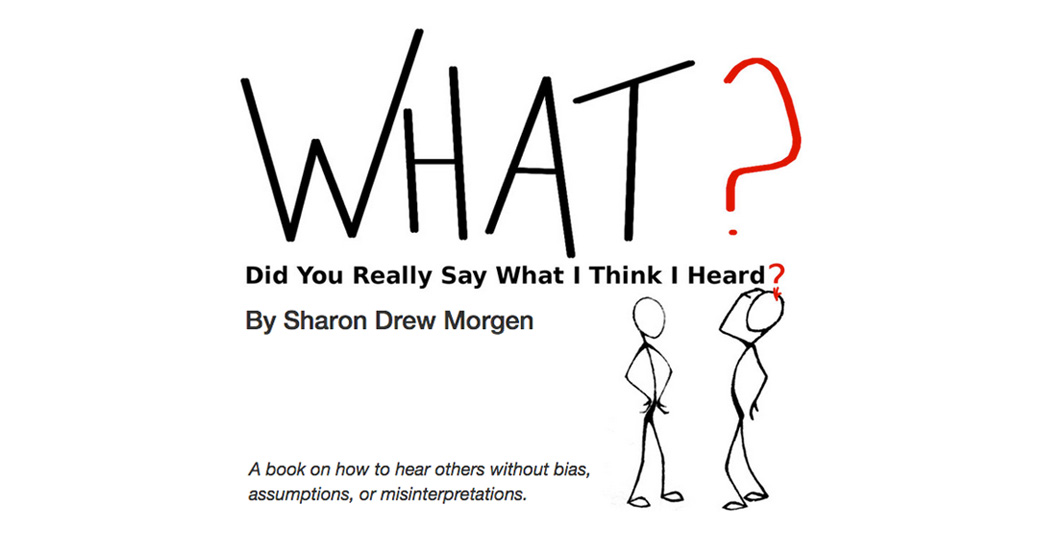The How of Heart
Collaboration. Empowerment. Win/Win. Integrity. Authenticity. We’re finally recognizing the efficacy of acting with humanitarian values! But how do we DO it? How do we know when, or if, to change our comfortable communication patterns? How do we modify any unconscious behaviors to make new habitual choices and recognize when what we’re doing no longer is sufficient?
WHY BEHAVIOR CHANGE ISN’T GOOD ENOUGH
DOing kindness, collaboration, and authenticity isn’t as easy as wishing it to happen. It takes a change in our behaviors; it means we have to change our habits and status quo. And that means we must do more than merely knowing we ‘should’. The problem is that our behaviors occur unconsciously and systemically, and won’t necessary accede to our desire to change. Here’s how it happens.
Our brains unconsciously choose our behaviors from our cache of lifelong subjective experience, values, and unconscious rules that forms our unique status quo. I call this our system – a well-oiled machine that keeps us ticking congruently every moment of the day. Our viewpoints, our styles, our behaviors are all pre-determined and habitual, and represent us consistently so we maintain our individual, unique systems (Systems Congruence) according to our own personal rules. I realize we all think we have unrestricted choice; we don’t. We follow our personal ‘company line’ in every action, every communication. We remain who we are in everything we do.
The problem arises when we wish to do anything different: our unconscious system will resist anything new because it is seen as a threat even if it’s something we’re nominally in agreement with. For any change to occur, our brains must first align the new with the old/habitual so we remain congruent. We know we should go to the gym more often, or eat healthy; we know we should allow our relatives to have disparate political viewpoints. But try as we might, we hard-pressed to permanently change our behaviors. This is the problem with conventional training and Self-Help books. We cannot change just because we seem to want to.
Why can’t we just DO something different? Because before we do, we must figure out a way to bring in the ‘new’ in a way that garners buy-in from the rest of our system so we can continue to be congruent. It’s a belief issue, not merely a behavior change problem. And our behaviors are merely the action, the outward manifestation, of our beliefs. The 400-pound man walking down the street will not heed an offer of a half-priced gym membership – not because he hasn’t looked in the mirror lately or because he’s ignoring his doctor’s warnings, but because his eating and lack of exercise are habitual and match the rules he’s already got in place: to make a permanent change, he’d have to ‘chunk up’ as they say in NLP, and go beyond the ‘What’ or the ‘Why’ to change his beliefs about who he is. He’d have to become a healthy person.
‘What’ to do is behavioral. ‘How’ is structural, systemic, and unconscious. Here’s an example of the difference: ZDNet has an article on transforming an organization on the principles of collaboration. They say it’s necessary to “Empower staff”: “To accomplish this goal it is important to train, support, and mentor staff to help them work more collaboratively. Staff must also practice their new collaboration skills back in the workplace so it becomes the new daily business and not just the latest management fad.”
Great. But HOW does one accomplish this? Everyone will interpret these words subjectively, according to their own beliefs about their skills. Obviously there can’t be organization-wide consistent adoption with just the What; information doesn’t cause change, and ‘What’ doesn’t address how to reconfigure our brain’s automatic choices. ‘How’ demands that we
- add automatic unconscious choices to our habitual behaviors to comply with our new goals;
- recognize the difference between what we think we’re doing and what we’re actually doing and notice there is a gap that prevents excellence;
- install the change we seek without offending what’s been working well;
- facilitate internal systemic buy-in to ensure our Status Quo is ready and able to change;
- override habitual behavior choices and replace them with the new as appropriate;
- maintain systems congruence.
It’s far more complicated than just understanding What to Do. It’s actually How to Be.
CHANGING BELIEFS CAUSES CHANGED BEHAVIORS
The problem with seeking to act with authenticity or empowerment, etc., is that we attempt to make behavioral changes without shifting the underlying system that holds our current behavioral choices in place. To enact any internal changes, to take on new habits or change behaviors, we must shift our core Identities and Beliefs, with new Behaviors the enactment of these shifts.
All of us have unique Identities; our Beliefs are the operating manuals; our Behaviors exhibit our Beliefs in action. Every day, in every way, we ACT who we ARE. I, for one, work out at the gym 9 hours a week. I hate it. But because I have determined that I AM a Healthy Person, I need my Behaviors to carry out my Identity accordingly: I eat healthy, exercise, and meditate. And on the days I would prefer to stay in bed, I ask myself if I’m a Healthy Person today and almost always, get my lazy self up and go to the gym.
This dependence on our Identities and Beliefs is foundational: we will do nothing – nothing – unless there is buy-in. When anything seeks to change us – when we receive training, or get told to ‘do’ something, or when coaches ‘suggest’ or sellers ‘recommend’ or leaders promote a new change – it shows up as a threat and will be resisted unless it’s accepted and adopted by our Identity and given a value set in our Beliefs. Once we ARE the change we seek, our new Behaviors will be natural and permanent.
To act with compassion, to have empathy, to lead with values, to design collaborative environments, we need a set of core Beliefs (I am a Kind Person; I Care About Collaboration With Colleagues) that get translated into new habitual choices; we need to inform our system to match the Doing to the new Being. We cannot congruently act the Doing if it’s incongruent with our Identity. It’s the most difficult aspect of change – creating consistent, habitual actions – because it’s unconscious, systemic, and resistant. It is possible, however, but not simple.
Working, speaking, acting with Heart is not behavioral. We must first Be the people with heart; Be kind, collaborative, authentic people. Organizations need to shift their corporate identities and manage behavioral adoption; we must become Servant Leaders and compassionate Leaders. We just need the Skills of How to accomplish this.
I’ve spent my life coding and designing models that create habitual, unconscious change. Although my work often shows up in the field of sales, it’s a generic model that is used by leaders, coaches, managers, doctors, and teachers, to lead Others (buyers, patients, clients, employees) through the necessary changes to shift their status quo congruently and embrace real change; it’s the ‘How’ of Excellence. After 35 years of teaching this material, I’m well aware of how difficult real change is. But if we begin by aspiring to Collaboration, Integrity, and Authenticity, we can become the change we seek.
————-
Sharon Drew Morgen is an original thinker and the visionary behind the choice model Buying Facilitation® that enables unconscious change and gives sellers, leaders, coaches, change agents, the skills to facilitate choice, change and buy-in in those we serve. The model is used globally in such companies as DuPont, Kaiser, IBM, Bose, KPMG, P&G and California Closets.
Sharon Drew is a speaker, trainer, author, coach, and change agent. She is the author of the NYTImes Business Bestseller Selling with Integrity, and 7 books on how to facilitate buying/buy-in decisions. Her innovative work on closing the gap between what’s said and what’s heard (see What? Did you really say what I think I heard?)offers choice to the listening process. Her blog (www.sharondrewmorgen.com) is consistently ranked in the top 10 of all sales and marketing blogs. Her articles regularly appear in HR.com, Personal Excellence, and Sales and Service Excellence. She can be reached at 512 771 1117; sharondrew@sharondrewmorgen.
Sharon Drew Morgen February 6th, 2017
Posted In: Communication


